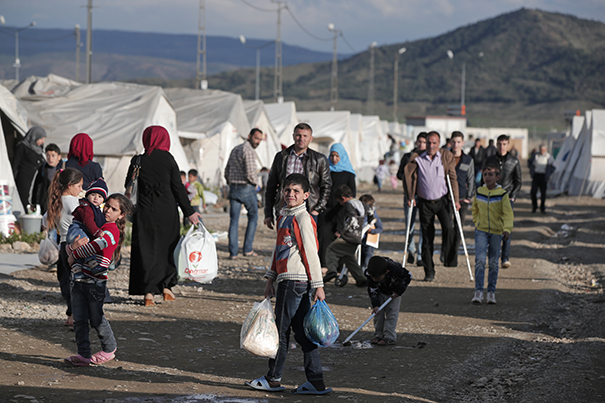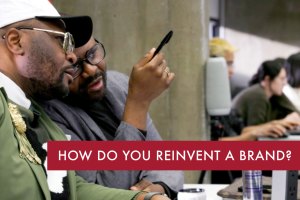Nation & World
-

Worried about how AI may affect foreign policy? You should be.
Experts discuss vulnerabilities, need for oversight of tech development, regulation
-
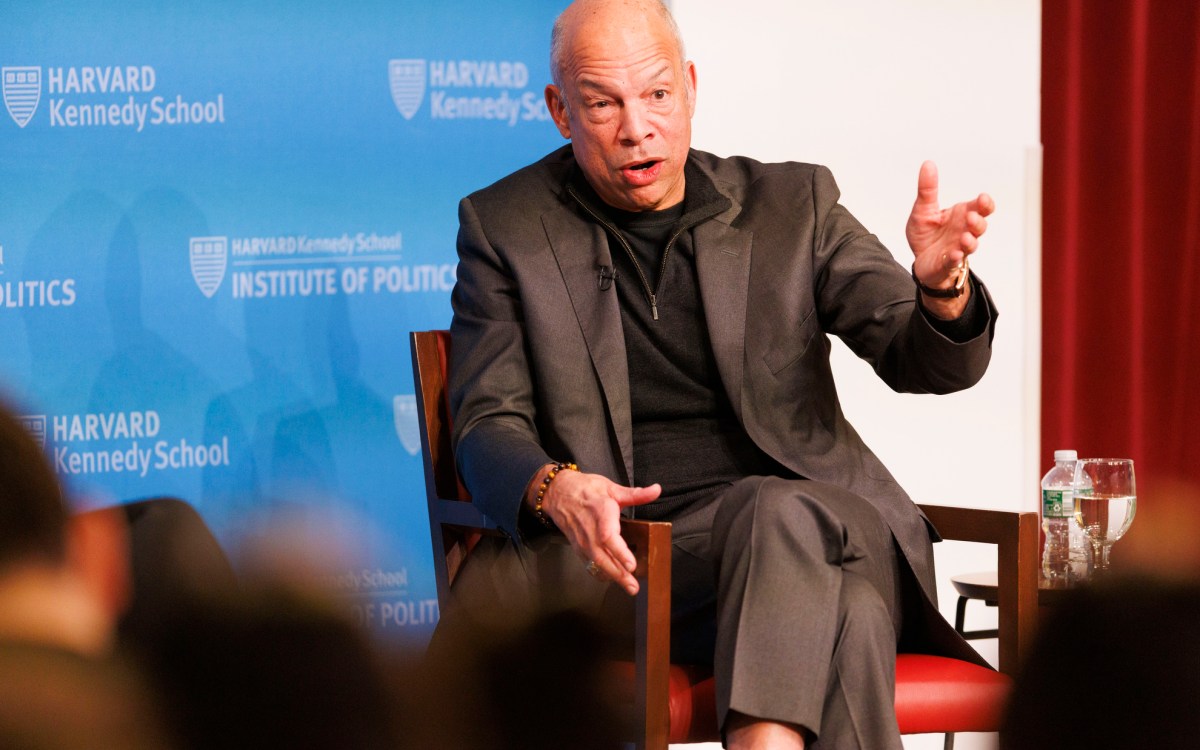
Border security isn’t really the problem
Former Homeland Security Secretary Jeh Johnson says current backlash is owing to cloudy mission, aggressive tactics
-
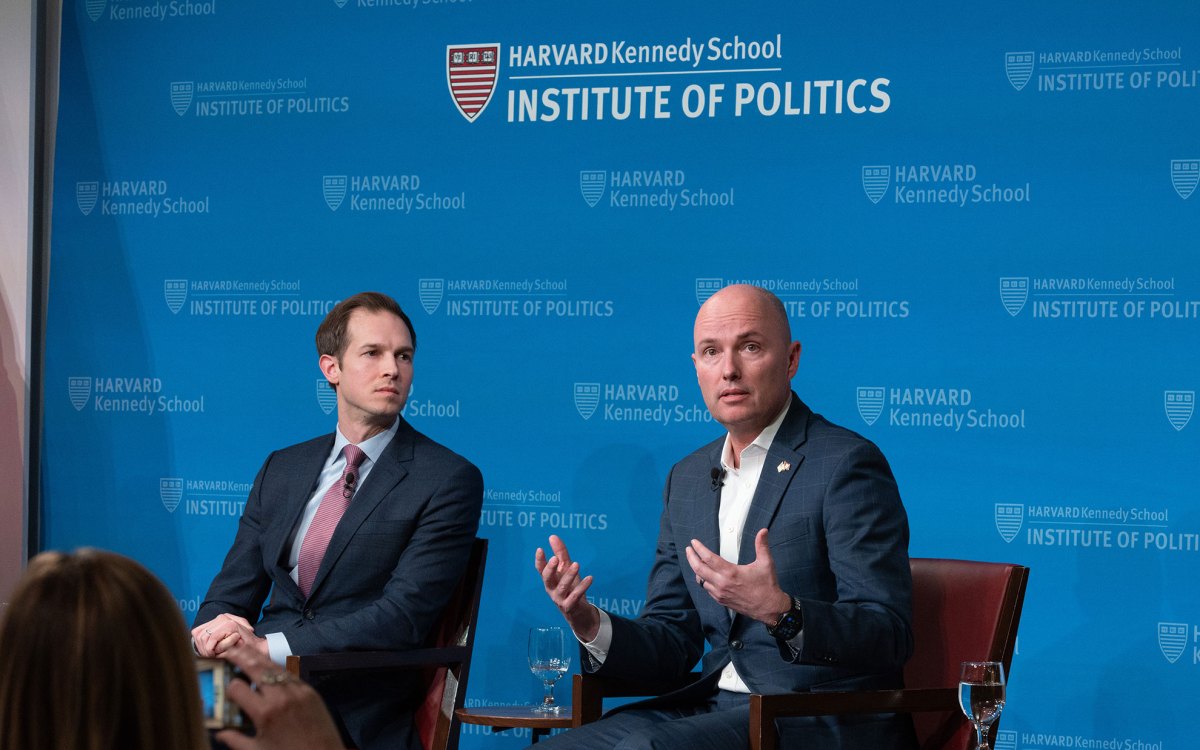
A start in bridging divisiveness: Rein in social media
Republican Utah governor, Democrat U.S. congressman find common cause
-
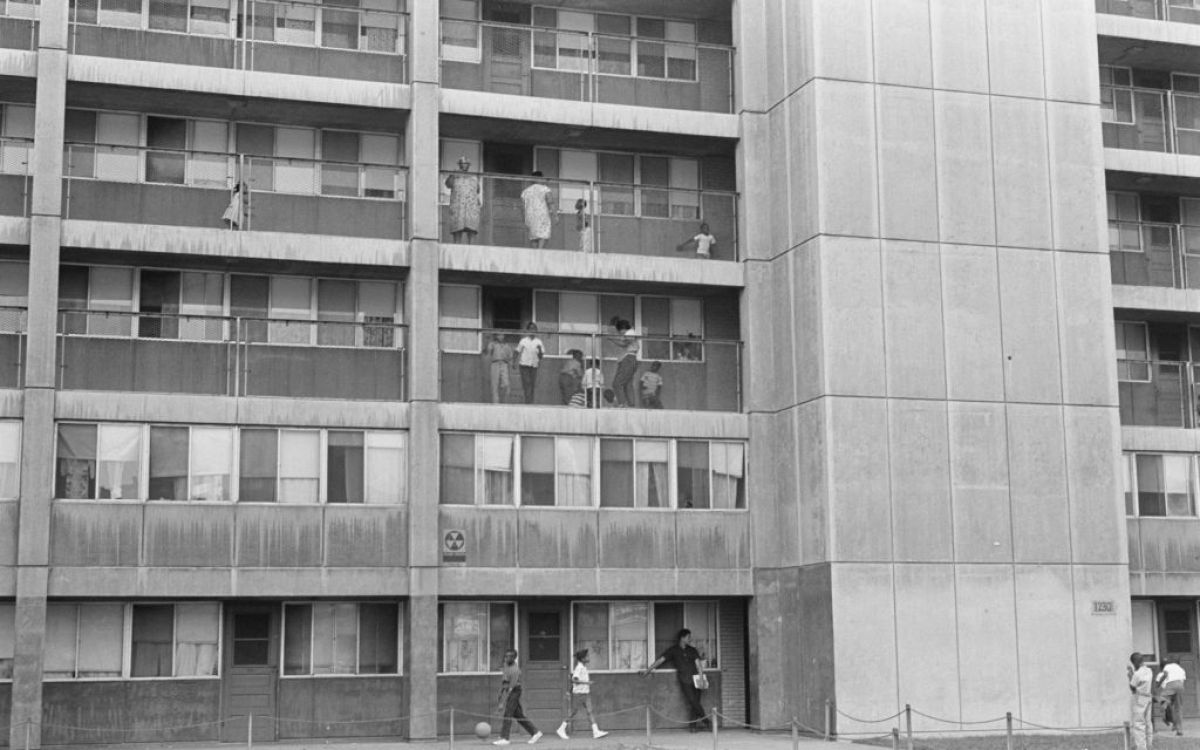
How design of public housing can lift future prospects of children
New research builds upon previous work that focused on moving families from high-poverty areas, broadening social milieu of young
-
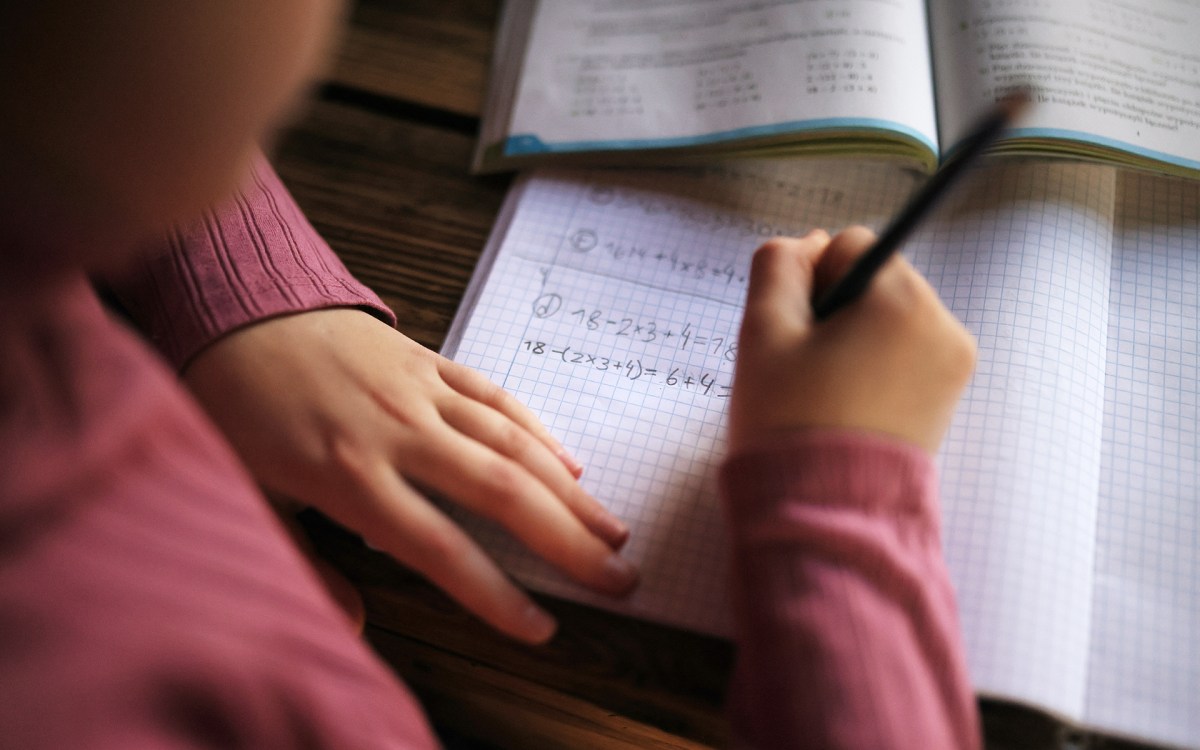
How to help lift slumping American math scores
Scholars see solutions in classroom creativity, higher teacher pay — and attendance
-
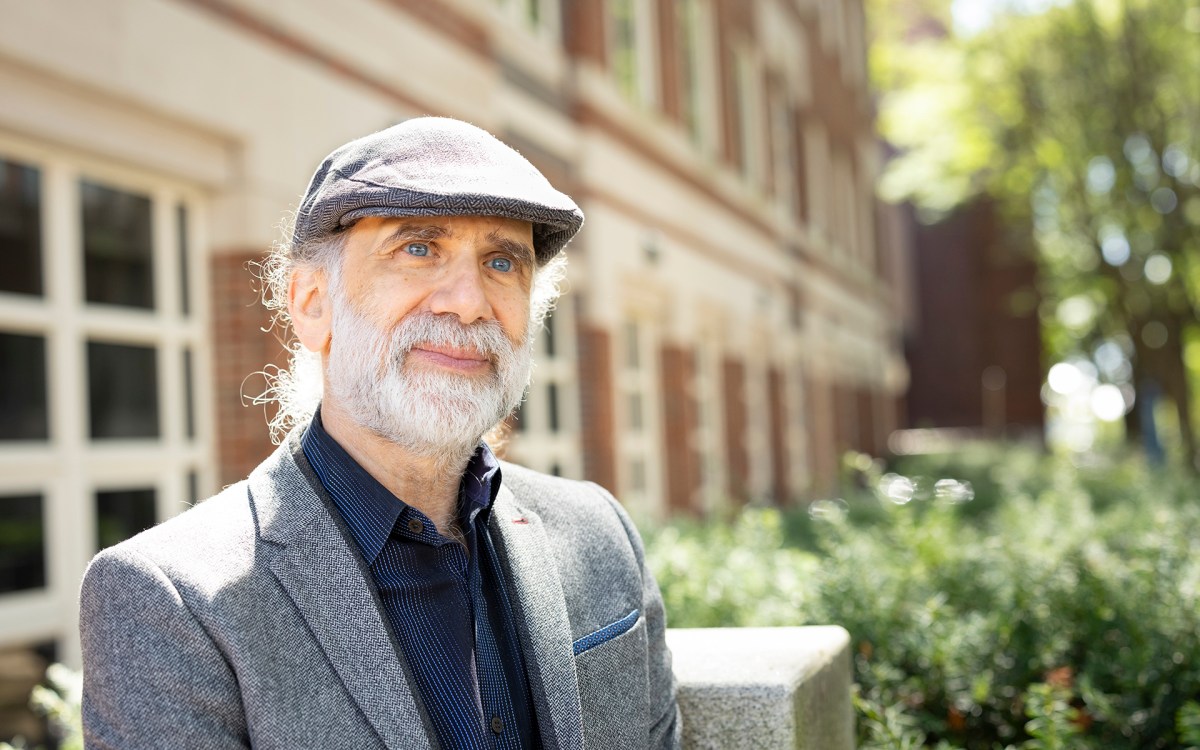
What if we used AI to strengthen democracy?
Surveillance, control, propaganda aren’t the only options, says security technologist
-
What Russia wants
Russian leader Putin and his government seek respect and stability from the next U.S. administration, Institute of Politics panel says.
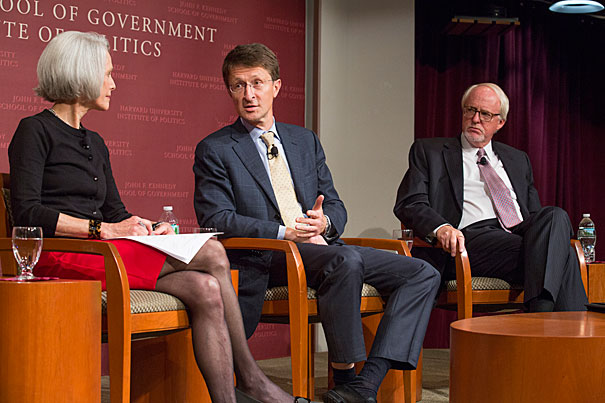
-
An opponent who prevailed
Myanmar leader Aung San Suu Kyi receives Harvard Foundation Humanitarian of the Year award.
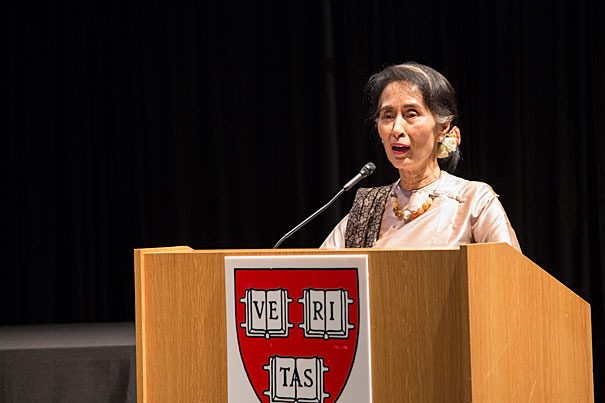
-
The miracle of a museum
Judge Robert Wilkins, a Harvard Law graduate and author, talks about the efforts to build the National Museum of African American History & Culture, which opens Sept. 24.
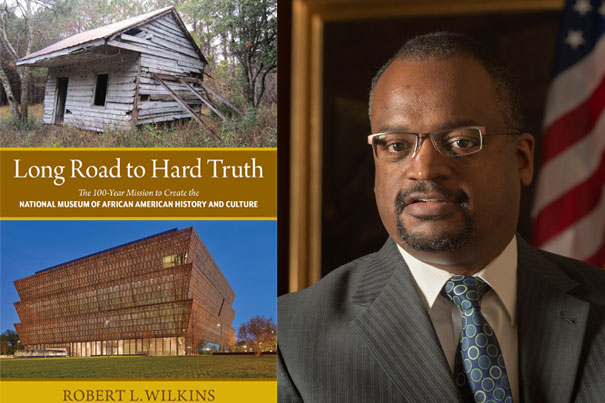
-
An ailing economy
National political dysfunction is crippling U.S. competitiveness, a major Harvard Business School report says.
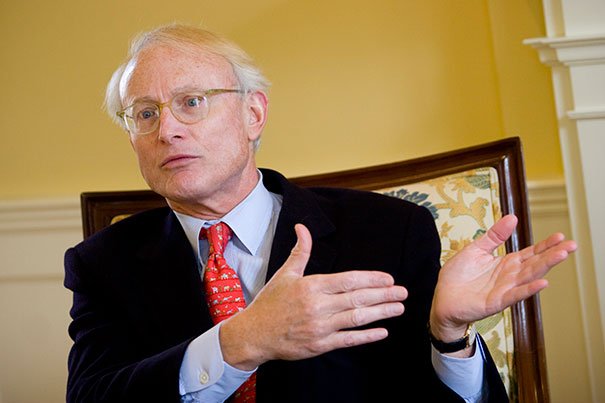
-
Want to thwart criminals? Take away their cash
In his latest book, “The Curse of Cash,” Ken Rogoff, the Thomas D. Cabot Professor of Public Policy, argues that the elimination of big bills could help stem crime and even aid countries trying to rebound from financial collapse.

-
From captivity to classroom
Jason Rezaian, the Washington Post reporter who was imprisoned for 543 days by Iranian authorities before the U.S. government negotiated his release in January in tandem with the Iran nuclear deal, joins the 79th class of Nieman Fellows this fall. His wife, Yeganeh, is a Shorenstein fellow.
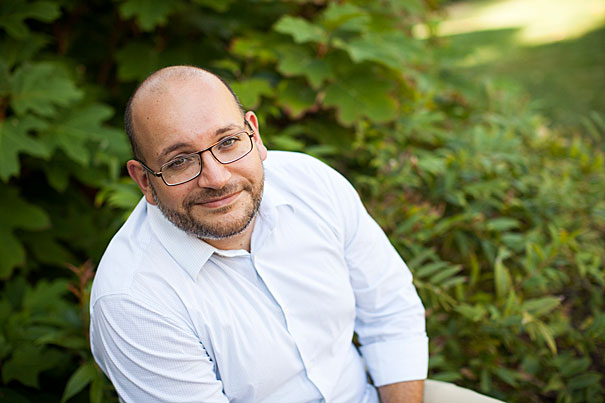
-
Examining U.S.-Mexico ties in the age of Trump
Harvard’s expert in Latin America, Davíd Carrasco, spoke with the Gazette about Mexico, which has taken center stage in the 2016 U.S. presidential campaign, and the long relationship between the two neighboring countries.
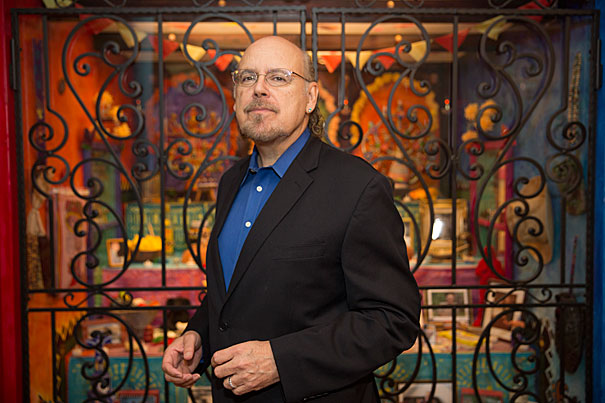
-
Celebrating the Pulitzers at 100
Washington Post investigative reporter Bob Woodward says the work of the watchdog press is “never sufficient.”
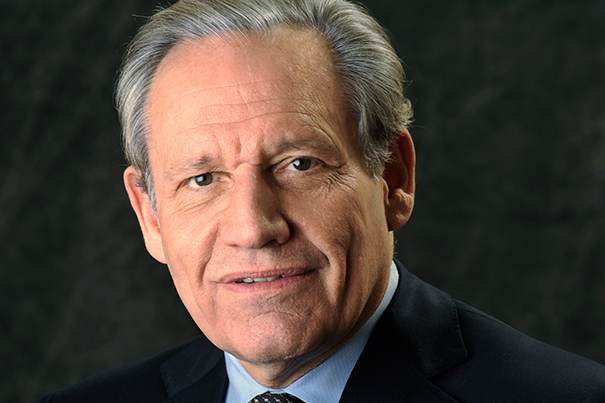
-
Behind Brazil’s leadership crisis
Frances Hagopian, the Jorge Paulo Lemann Senior Lecturer in Government, spoke with the Gazette about the impeachment of President Dilma Rousseff of Brazil.
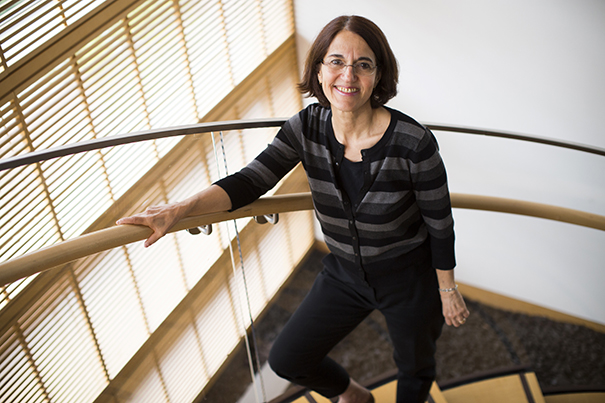
-
From military policy to reality
Over summer, a Harvard ROTC cadet traded a Pentagon office for Slovak training exercises.

-
The makings of Merrick Garland
Addressing the incoming class at Harvard Law School on Friday, U.S. Supreme Court nominee Merrick Garland ’74, J.D. ’77, recalled how, as a federal prosecutor, he helped convict the Oklahoma…
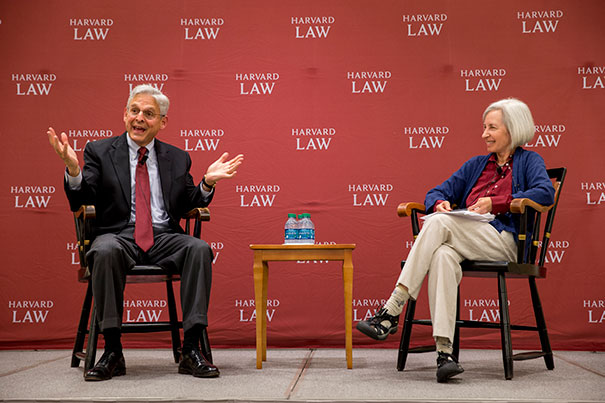
-
National parks at a turning point
The Kennedy School’s Linda Bilmes took part in a centennial effort to identify goals and challenges for the national parks.

-
Harvard professor creates a course for the world
In this edition of EdCast, Harvard Graduate School of Education Professor Fernando Reimers gives insight into a curriculum designed to empower all citizens of the world through his new book, “Empowering Global Citizens: A World Course.”
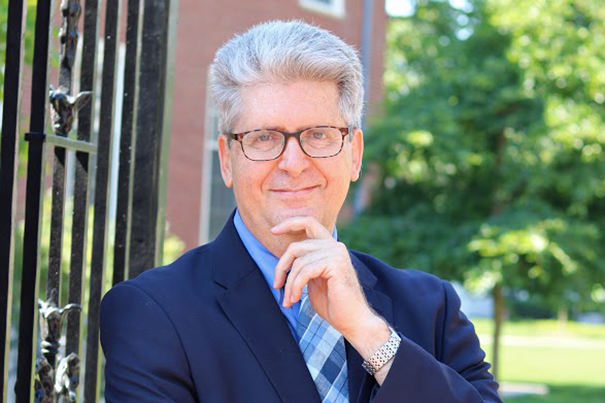
-
Religion as social unifier
There are plenty of things that make it possible for humans to live in large groups and pack into cities. New building techniques and materials, for instance, allow construction of…

-
MOOCs ahead
MOOCs (massive open online courses) have sparked explosive growth in both education and opportunity. Consider edX. Since this joint Harvard and MIT online platform launched in 2012, it has attracted…
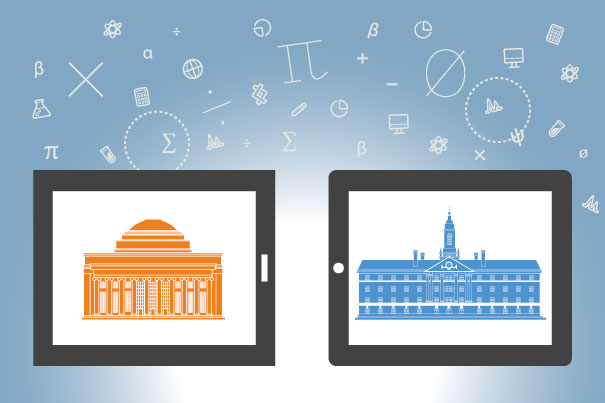
-
In Turkey, a struggle for normalcy
I arrived in Istanbul on July 8, planning to conduct a month of historical research for my upcoming senior thesis. A week later, Turkey was thrown into chaos after the…

-
Poll unveils millennial agenda for next president
Harvard’s Institute of Politics latest poll of Americans ages 18 to 29 year olds finds that economic concerns top the list.
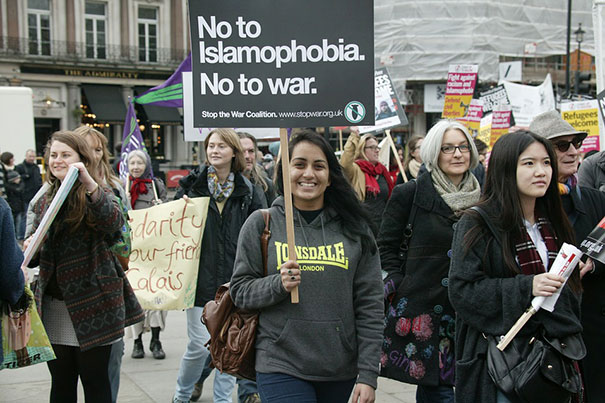
-
Tennessee tracking police deaths, killings
The Harvard T.H. Chan School of Public Health examines how the state of Tennessee is taking action to more accurately track police deaths and police killings — and explore how that could lead to changes in how police forces operate.
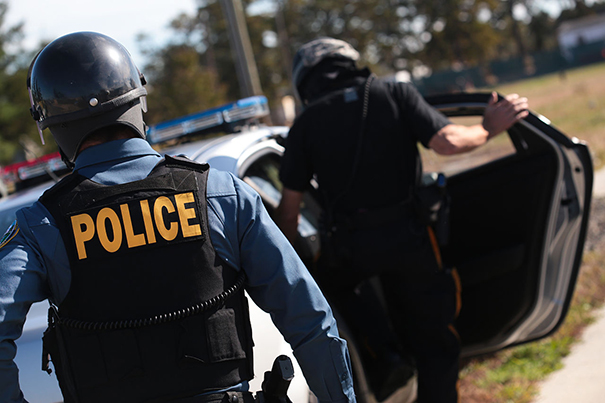
-
Politics in a ‘post-truth’ age
Harvard analysts discuss the unusual dynamics and events of the 2016 presidential election, and what they mean for our political system going forward.
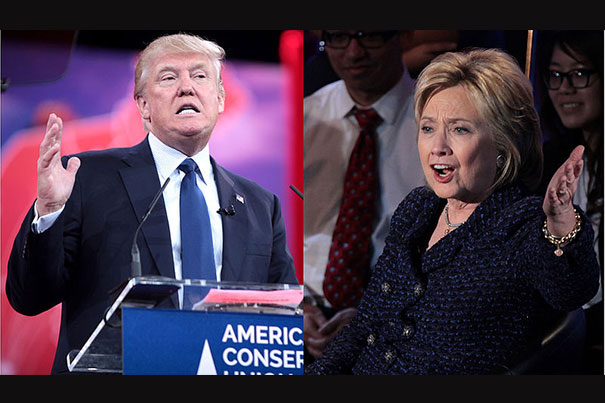
-
Rethinking Olympic glory
A symposium called “Who Will Win in Rio?” discussed many of the barometers of success that define the Olympic Games.
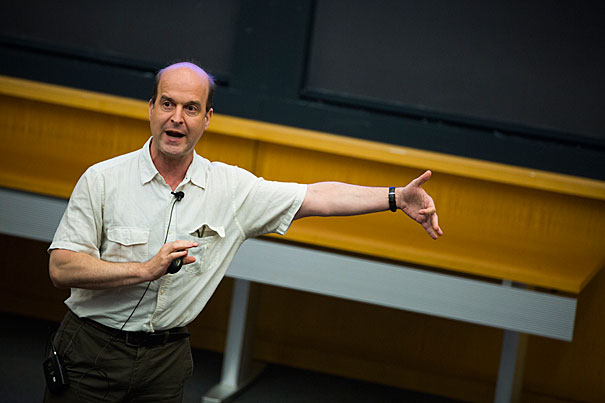
-
Public programs are ‘good economic bets’
Harvard Business School labor economist Gareth Olds discusses new research into the surprising relationship between entrepreneurship and the social safety net.
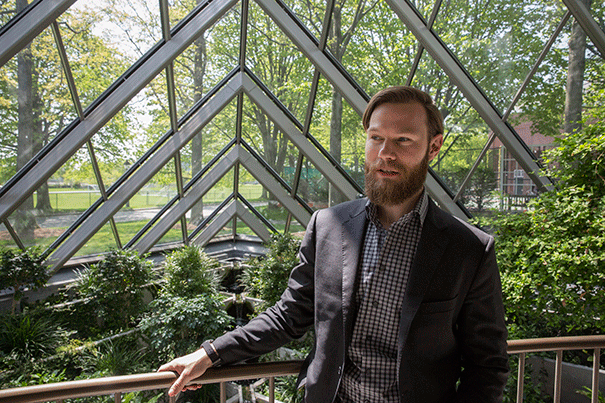
-
Death in black and white
Harvard Law School’s Ronald Sullivan discusses the shocking eruption of deadly violence between police and African-Americans in Louisiana, Minnesota, and Dallas.
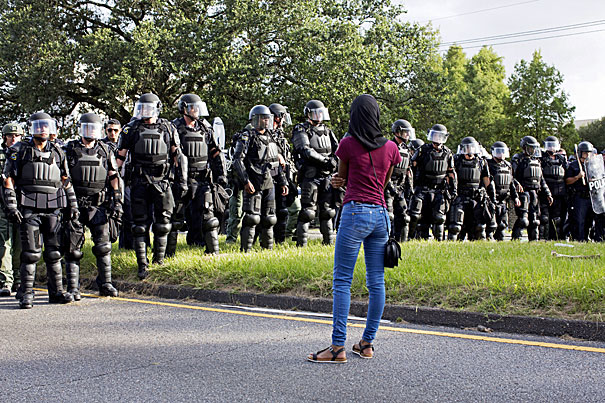
-
Child’s remark the impetus for marriage equality suit
Julie Goodridge returned to the Harvard Graduate School of Education to participate in last semester’s Askwith Forum and speak about her role in the same-sex marriage movement.
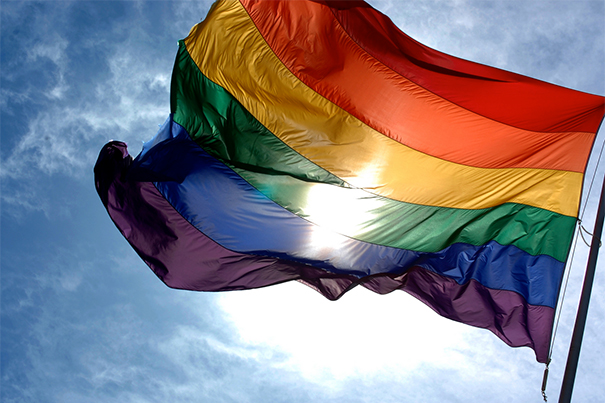
-
Strong statement on abortion access
Harvard Law School professor I. Glenn Cohen breaks down the ruling and its ramifications.
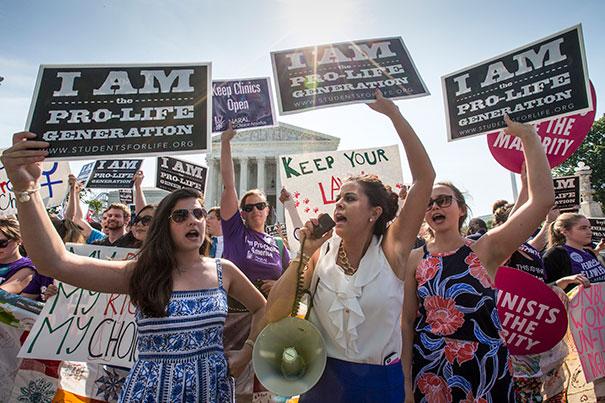
-
Celebrating a decade in São Paulo
The Lemann Brazil Research Fund furthers connections between Harvard and Brazil.
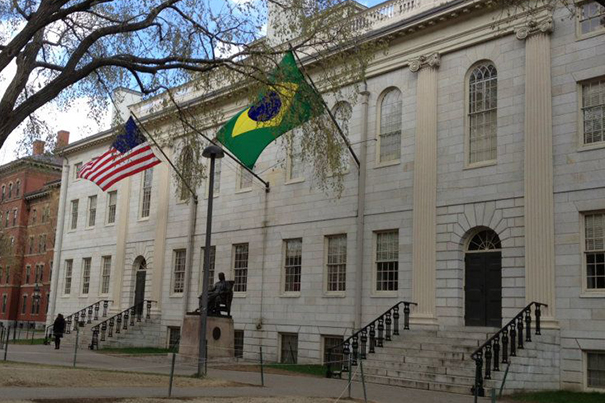
-
After Brexit, a changed future
Harvard analysts talk about the effects of the United Kingdom’s referendum to leave the European Union on both Britain and the continent.
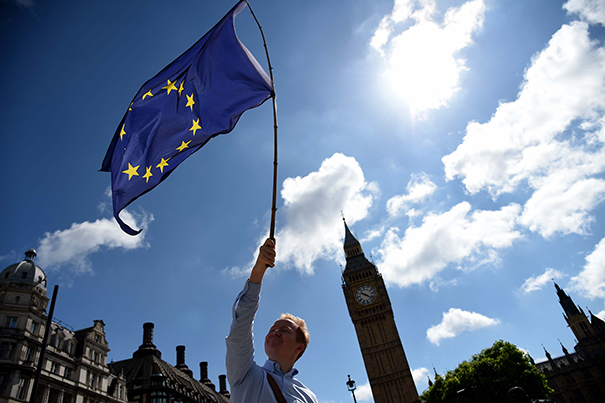
-
Limitations on the undocumented
A divided Supreme Court ruled against President Obama’s executive actions that could have aided 5 million illegal immigrants, and Harvard analysts reacted.
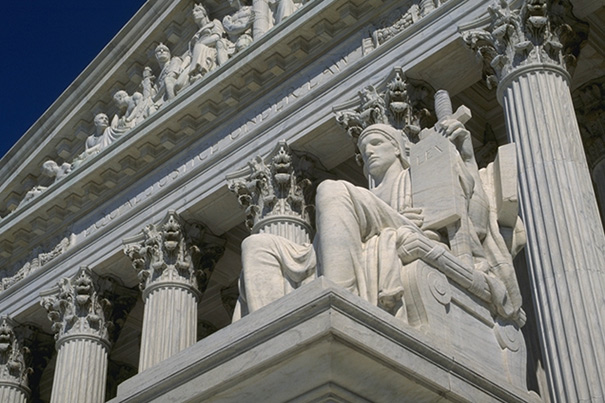
-
Affirming whole-person admissions
Universities may continue to consider racial and ethnic backgrounds in evaluating their applicants for admission, Supreme Court rules.
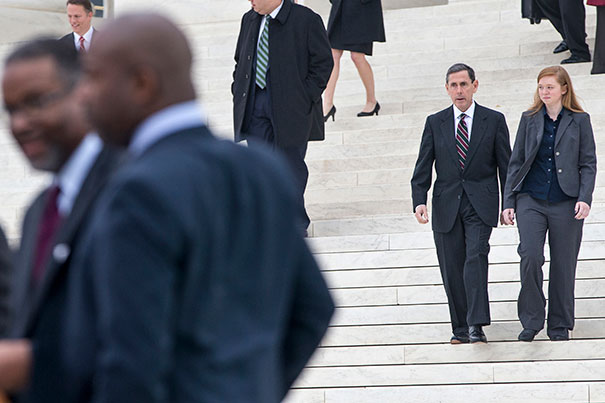
-
Britain muses: Play bridge or solitaire?
Former Shadow Foreign Secretary Douglas Alexander discusses the issues behind the national referendum on the United Kingdom’s membership in the European Union and the potential economic and political ramifications should voters decide to sever ties.
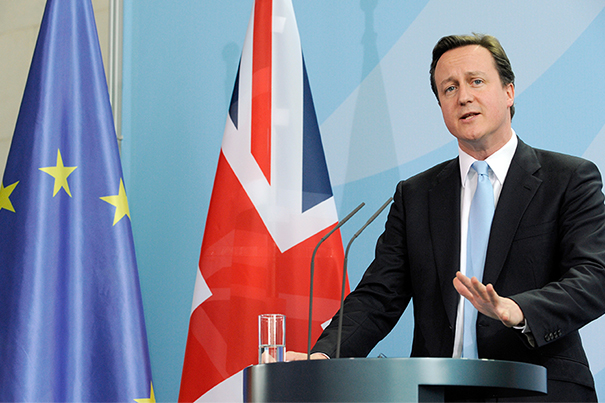
-
Left to their demons
The Gazette spoke with psychologist Richard Mollica about a lesser known crisis zone for the displaced: mental health.
